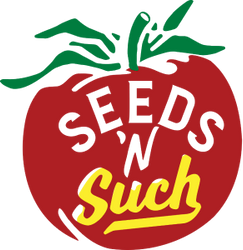Our Pollinators Are Very Precious Assets
“Consider for a moment that insect-pollinated fruits and vegetables provide most of the vitamins and minerals we need, and they diversify our diet beyond meat and wind-pollinated grains,” says the Xerces Society’s guide Attracting Native Pollinators, “The U.S. and Canada alone grow more than a hundred different crop plants that need pollinators. Without bees, there would be no apples, pumpkins, strawberries, or many other fruits and vegetables.”
According to the authors, “The economic value of insect-pollinated crops in the United States in 2003 was estimated between $18 and $27 billion. If this calculation is expanded to include indirect products, such as the milk and beef from cattle fed alfalfa, pollinators may be responsible for more than twice this amount. Scientists at the Xerces Society and Cornell University have estimated that approximately 15 percent of this value comes from native bees (honeybees from Europe, not native) living in the landscape on and around farms.”
Narrowing down pollinator-dependent crops to just the two states of Washington and Oregon, the guide says, “… these crops are concentrated in three agricultural sectors: fruits and berries, alfalfa seed, and vegetable and flower seed. Oregon ranks first in the United States for harvest of blackberries, loganberries, black raspberries, boysenberries and youngberries. Washington ranks first in the United States for apples, sweet cherries and pears. Both states also produce substantial crops of vegetable and flower seed that depend on good pollination, and both are major producers of alfalfa seed, whose production requires bee pollination. In 2008, the combined value of pollinator-dependent crops from these two states alone was nearly $3 billion.
“Pollinators also are directly responsible for many beverages (such as apple and cranberry juice), fibers (especially cotton and flax), and oil crops such as canola and sunflower, which are increasingly being used for biofuel production,” the authors continue, “We cannot overlook that pollinators are responsible for many of the beautiful flowering plants and trees in our gardens, which can provide us with spiritual inspiration, better mental health, and improved learning. Research suggests that spending time outside can improve concentration, help the behavior of children with attention disorders, and improve test scores. In short, insect-pollinated plants are the basis for much of our food, our economic stability, and our overall well-being.
“The work of pollinators has value beyond providing food and resources for people,” the authors add, “Pollinators help keep plant communities healthy and productive. In many areas, pollinators are crucial for flowering plants: for example, almost all of the arid Southwest’s bushes and smaller trees—such as mesquite, creosote bush, and chamise—are pollinated by bees. When the pollinators are lost, bushes and trees may continue to flower and look normal for decades. By the time someone notices that they are not reproducing, it may well be too late to reintroduce a pollinator and preserve the ecosystem.”
In summation, the guide notes, “(1) Approximately one in three mouthfuls of food and drink require the presence of a pollinator; (2) Pollinators provide an ecological service that is essential to the health of the environment; and (3) Pollinators are central to the lives of other wildlife, from songbirds to grizzly bears.”
